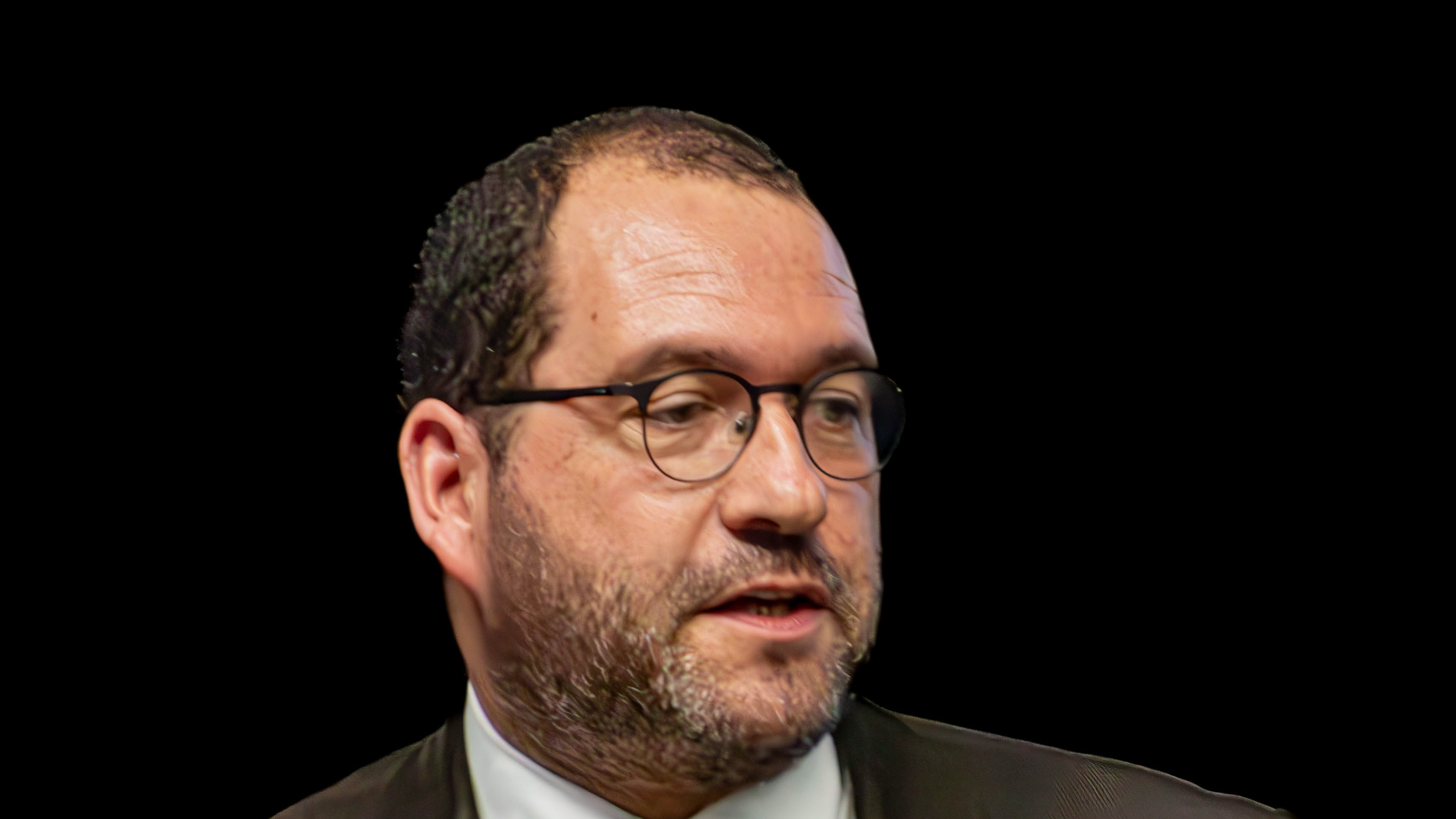[EN]
José Manuel Ramos-Horta is a Timorese politician and jurist, awarded the Nobel Peace Prize in 1996.
Born on December 26, 1949 in Dili, East Timor. He is the son of a Portuguese sergeant from Figueira da Foz, deported to Timor, and was educated in a Catholic mission.
He has a degree in International Law from the Academy of International Law in The Hague, Netherlands, and from Antioch University, in the USA.
In 1974 he founded the Timorese Social Democratic Association (ASDT), later transformed into the Revolutionary Front of Independent Timor-Leste (FRETILIN), of which he was Secretary for External Relations and Information.
During Timor-Leste's independence, unilaterally declared by FRETILIN in 1975, he held the position of Minister of Foreign Relations and Information. On December 7th of that year, the Indonesian invasion took place, which Ramos-Horta did not attend because he was absent, in New York, at the United Nations headquarters, where he represented FRETILIN.
Since 1976, he has dedicated himself to the study of Human Rights, International Relations and Diplomacy, having attended North American, French, English and Australian universities.
He represented the National Council of Maubere Resistance (CNRM) between 1991 and 1998, after the arrest of the president of the National Council of Timorese Resistance, Alexandre Gusmão (Xanana Gusmão). In 1992 he became its representative and, in 1998, he assumed the vice-presidency of the CNRT.
He lived in exile between 1975 and 1999 - in Portugal, Australia and the USA - as a spokesperson for the Timorese resistance to the Indonesian occupation.
In 1975 he was the youngest diplomat ever to speak at the United Nations Security Council.
In 1992, he presented to the European Parliament a CNRM plan for peace, which envisaged the transition process for the self-determination of the Timorese people, following which he was appointed Minister of Foreign Affairs of the transitional government in Timor-Leste (2000- 2006) .
He took up residence in Australia in 1990, where he taught and directed the Diplomatic Training Center at the University of New South Wales, in Sydney.
In 1996, together with D. Ximenes Belo, he was awarded the Nobel Peace Prize.
In 2001, with Xanana Gusmão and D. Ximenes Belo, he received the title of Doctor Honoris Causa from the University of Porto.In 2007, he was elected president of the Republic of Timor-Leste, remaining in office until 2012. In 2008, he was the victim of an attack perpetrated by a rebel group, which left him seriously injured.
Since 2022, he has been President of the Democratic Republic of Timor-Leste.
Ramos-Horta also has Portuguese citizenship and is Catholic. He speaks Tetum, Portuguese, English, French and Mandarin and understands other languages spoken in Timor-Leste.
[PT]
José Manuel Ramos-Horta é um político e jurista timorense, galardoado com o Prémio Nobel da Paz.
Nasceu a 26 de dezembro de 1949 em Díli, Timor-Leste. É filho de um sargento português da Figueira da Foz, deportado para Timor, e foi educado numa missão católica.
É formado em Direito Internacional pela Academia de Direito Internacional de Haia, Holanda, e pela Universidade de Antioch, nos E.U.A.
Em 1974 fundou a Associação Social-Democrata Timorense (ASDT), depois transformada na Frente Revolucionária de Timor-Leste Independente (FRETILIN), de que foi Secretário para as Relações Externas e Informação.
Durante a independência de Timor-Leste, declarada unilateralmente pela FRETILIN em 1975, ocupou o cargo de ministro das Relações Externas e Informação. A 7 de dezembro desse ano deu-se a invasão Indonésia, a que Ramos-Horta não assistiu por se encontrar ausente, em Nova Iorque, na sede das Nações Unidas, onde representava a FRETILIN.
Desde 1976 que se dedica ao estudo dos Direitos Humanos, das Relações Internacionais e da Diplomacia, tendo frequentado universidades norte-americanas, francesas, inglesas e australianas.
Representou o Conselho Nacional de Resistência Maubere (CNRM) entre 1991 a 1998, depois da prisão do presidente do Conselho Nacional da Resistência Timorense, Alexandre Gusmão (Xanana Gusmão). Em 1992 tornou-se seu representante e, em 1998, assumiu a vice-presidência do CNRT.
Viveu no exílio entre 1975 e 1999 - em Portugal, na Austrália e nos E.U.A - como porta-voz da resistência timorense à ocupação indonésia.
Em 1975 foi o diplomata mais jovem de sempre a discursar no Conselho de Segurança das Nações Unidas.
Em 1992 apresentou ao Parlamento Europeu um plano do CNRM para a paz, que previa o processo de transição para a autodeterminação do povo timorense, na sequência do qual foi indigitado ministro dos Negócios Estrangeiros do governo de transição em Timor-Leste (2000- 2006).
Fixou residência na Austrália em 1990, onde lecionou e dirigiu o Centro de Formação Diplomática na Universidade de Nova Gales do Sul, em Sidney.
Em 1996 foi distinguido, juntamente com D. Ximenes Belo, com o Prémio Nobel da Paz.
Em 2001, com Xanana Gusmão e D. Ximenes Belo, recebeu o título de Doutor Honoris Causa pela Universidade do Porto.
Em 2007 foi eleito presidente da República de Timor-Leste, mantendo-se no cargo até 2012. Em 2008, foi vítima de um atentado perpetrado por um grupo rebelde, que o deixou gravemente ferido.
Em 2007 foi eleito presidente da República de Timor-Leste, mantendo-se no cargo até 2012. Em 2008, foi vítima de um atentado perpetrado por um grupo rebelde, que o deixou gravemente ferido.
Desde 2022, é Presidente da República Democrática de Timor-Leste.
Ramos-Horta tem, também, cidadania portuguesa e é católico. Domina Tétum, Português, Inglês, Francês e Mandarim e compreende outras línguas faladas em Timor-Leste.
The moment presented here was captured at Escola Portuguesa Ruy Cinatti, in Dili, on September 18, 2015.
This page was updated in: 2024.november.16




